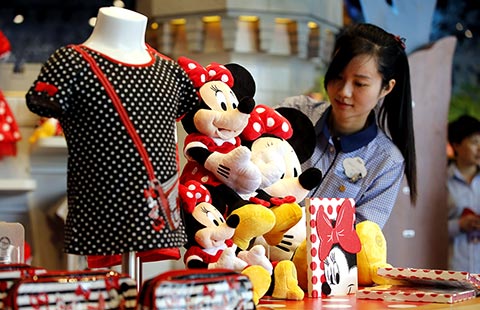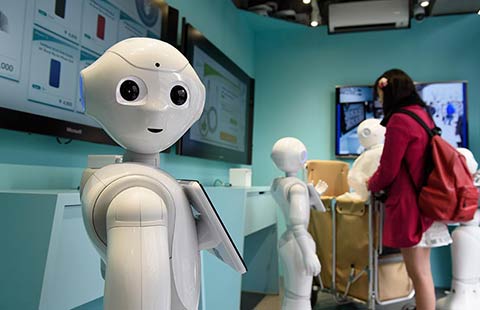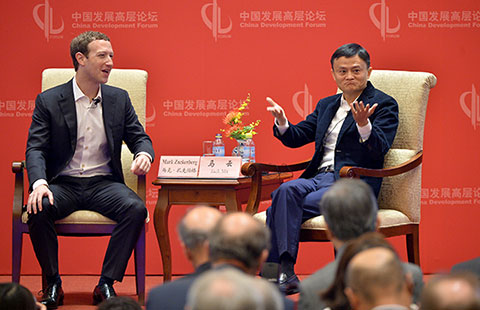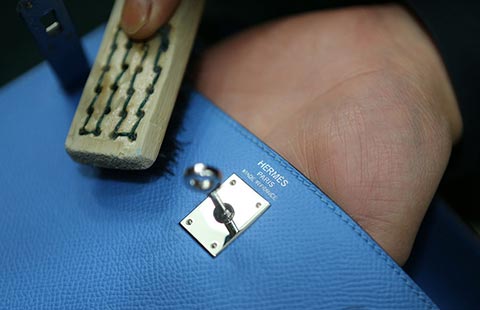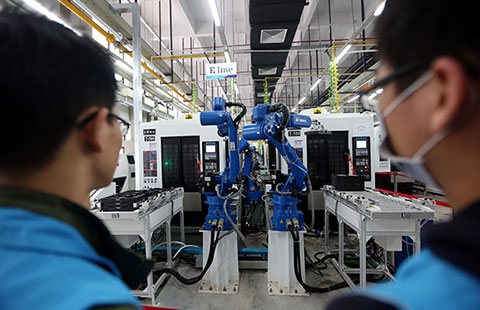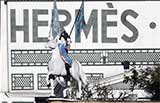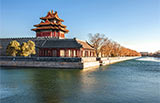Chinese tourists bemoan UK's tax-refund system
By Wang Mingjie (China Daily) Updated: 2016-03-28 07:43Global Blue said the company does not share "refund tables" in any of its markets due to commercial sensitivity, adding that its services are optional and can be declined if travelers prefer not to pay its service fee.
"They can liaise directly with merchants and local authorities; however, this process is a very lengthy and complex one," the company said in a statement.
Selfridges, a popular store among Chinese visitors to London, would not comment on fees for VAT refunds, saying only that its tax-free shopping service is operated by Global Blue.
Harrods, another famous British department store, also declined to comment on fees, but said it is continuing to work with Global Blue to improve the tax-free process by providing a selection of options for receiving tax refunds, including cash in store for sales under 10,000 pounds and instant refunds via Harrods Rewards Cards or Alipay, the third-party payment system owned by Chinese technology company Alibaba.
Customers are also charged a fee at the airport counter for cash refunds. And although there is no fee for credit or debit cards, overseas visitors have complained they find it hard to chase refunds that fail to make it to their account in time once they return to their native country.
"I had the experience of not receiving money from a card refund, and I couldn't do much about it when I returned to China," Qian said. "Plus, non-UK credit and debit cards will also impose their own exchange rates."
Lei Yamin, a Chinese tourist from Zhejiang province, said, "I was appalled that those who want a refund in sterling are asked to take out every single item they have purchased to be checked, while those who want a foreign currency don't. That is a clear indication that a sterling refund is discouraged, as the currency conversion rate at the refund booth is much lower than on the high street."
In response, Travelex said in a statement that it is reviewing its practices at airports to shorten waiting times, and added that it is legally required to conduct random checks on people's goods at VAT refund counters.
However, Hugo Jenney, a partner at British law firm Stephenson Harwood, says the lack of clarity in the system is ripe for criticism, as it allows various parties to potentially exploit the naivety and lack of bargaining power of the average foreign tourist to the UK.
"It's fair to have certain charges, but whether they are clearly outlined to the buyers so they know what they are doing and what their choices are, or whether they are exploiting a muddy area in which they know the tourists will not complain is another matter," he said.
He added that he was shocked by one report that a Chinese visitor had lost about 50 percent of her VAT refund, arguing that various participants are "profiteering" from the complexities of the system.
Such inefficiency would not be tolerated in many other markets, he says, and the reason it is in the UK is because there is no transparency, and perhaps also a lack of competition or interest in competitiveness, he said. Jenney said the system would benefit from some scrutiny from a body that can impose guidelines.
"Shopping is a huge part of many tourists' visits to Britain," said Patricia Yates, director of VisitBritain, the UK's official tourism board. "A simple and slick VAT refund scheme would make us a more attractive destination for high-spending visitors, including the Chinese, who are some of our highest spenders."
Latest figures from VisitBritain show Chinese made 214,000 visits between January and September last year, up 37 percent on the same period in 2014. Each spent on average 2,688 pounds.
Tourism has become big business in the UK, with the number of people employed in the industry growing by almost 12 percent in the five years up to 2014, from 2.66 million to 2.97 million, according to VisitBritain.
- Secondhand vehicle sales expected to soar this year
- Qoros sees change at helm amid reshuffle
- Auto executives shifting to Internet companies
- Analysts see selling pressure in A-share markets
- Railway companies on track to haul the world
- Yuanda targets agribiz firms in US and Germany
- Look before you leap into overseas M&A
- China's pension fund to flow into stock market this year
